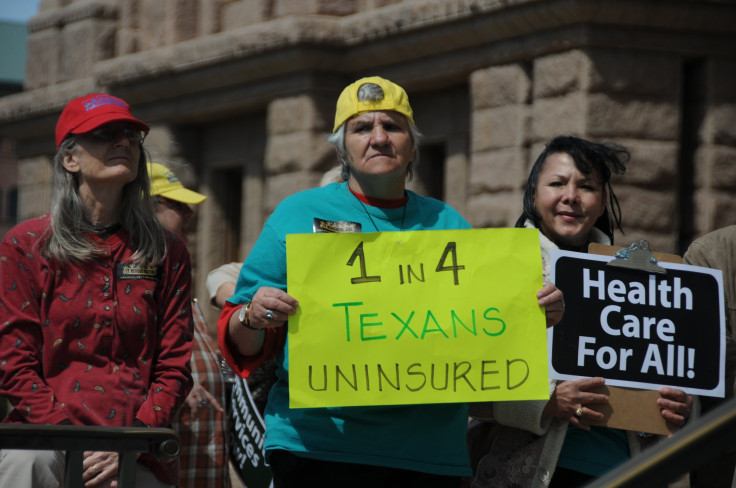Poor Uninsured Adults In America Healthier Than Medicaid Recipients

Poor Americans about to become eligible for Medicaid under the Affordable Care Act are generally healthier than those already covered by the federal-state health insurance program.
Uninsured low-income adults were less likely than Medicaid beneficiaries to experience chronic conditions such as high blood pressure, diabetes, and hypercholesterolemia, according to a new study published in Wednesday's issue of JAMA, the Journal of the American Medical Association. However, uninsured adults with one of those conditions were also less likely to be aware of their disease or to manage it.
But under the expanding Medicaid coverage via the Affordable Care Act, also known as "Obamacare," states may soon enroll millions of new participants. "In states choosing to implement the expansion, with full federal financing from 2014 through 2016, this would expand Medicaid's traditional focus away from low-income pregnant women and children, very-low-income parents, and the severely disabled to new population groups," study authors wrote. "These include childless adults and parents whose incomes are too high to qualify for Medicaid under current state eligibility criteria."
Thus, the type of Medicaid patient seen by clinicians in states choosing to expand Medicaid would likely change, with uncertainty regarding the scope of medical services required for the new enrollees, the study authors noted.
Sandra L. Decker, of the U.S. Centers for Disease Control and Prevention, led a study to assess the health risks and health care requirements of uninsured adults who may gain Medicaid coverage under Obamacare. She and colleagues analyzed data from more than 1,000 uninsured adults ages 19-64 years of age who were nationally representative of poorer Americans, defined here as no more than 138 percent of the federal poverty level. They then compared these low-income adults to 471 poor adults enrolled in Medicaid. Based on demographic information from 2007-2010, the low-income study group represented some 14.7 million uninsured adults in America.
When measuring the prevalence and risk of primary diseases central to health care costs in aggregate, researchers found that the uninsured poor generally reported better health and were less likely to be obese and sedentary. They were also less likely to report physical, mental, or emotional limitation — and much less likely, by 15.1 percentage points, to experience multiple health conditions.
So although the uninsured were less likely than those enrolled in Medicaid to experience diabetes, high blood pressure, or hypercholesterolemia, at 30.1 percent to 38.6 percent, they were of course less likely to receive diagnosis and treatment in the event of disease. Of uninsured adults with at least one of the conditions, four in five did not receive treatment for their illness, compared to just 63.4 percent of Medicaid beneficiaries.
In extrapolating the data to the general populations, researchers estimated that 1.4 million uninsured adults — who may soon qualify for Medicaid — experience at least one undiagnosed condition, with 3.5 million experiencing an uncontrolled condition.
"One-third of potential new Medicaid enrollees are obese, half currently smoke, one-fourth report a functional limitation, and one-fourth report their health as fair or poor-all factors that could require attention from clinicians," the study authors wrote. "If Medicaid uptake is low, the uninsured adults who do enroll in Medicaid may be disproportionately drawn from those with more health problems than average among those made newly eligible."
Given that many uninsured adults have not seen a physician during the past year and lack for routine preventive medical care, they would likely require care upon first enrolling in Medicaid, suggesting an initial bump in coverage costs for an otherwise healthier population of beneficiaries.
Decker planned to present the findings on Wednesday at the AcademyHealth annual research meeting in Baltimore.
Source: Decker, Sandra L. Low-Income Uninsured Adults Less Likely To Have Chronic Conditions Compared With Medicaid Enrollees. JAMA. 2013.
Published by Medicaldaily.com



























